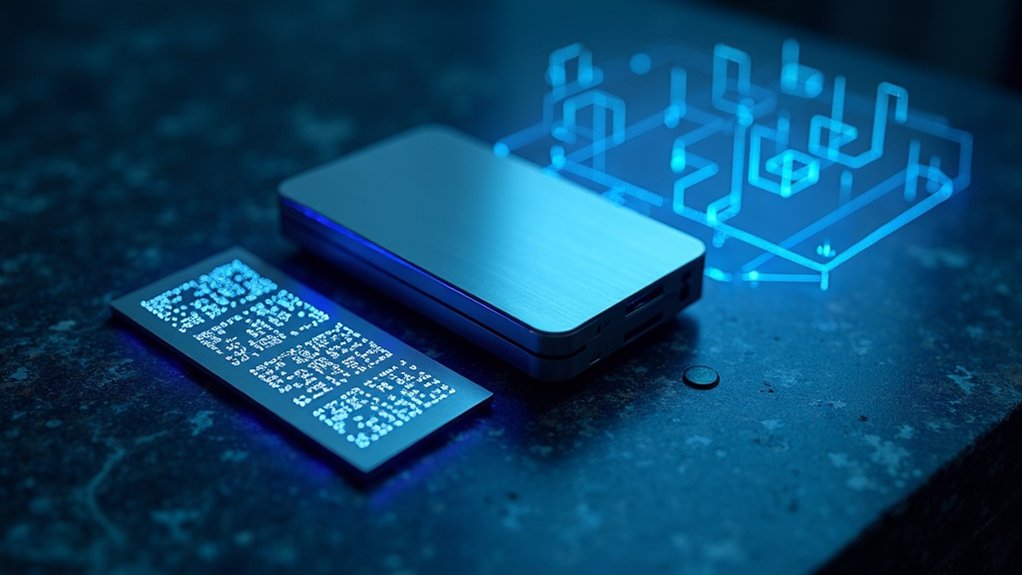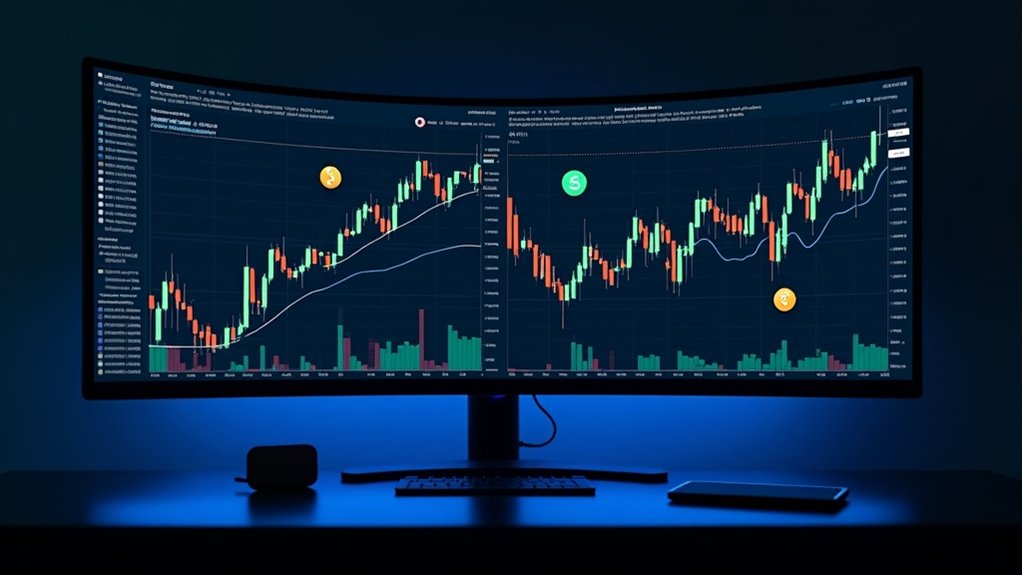A self-custody wallet gives crypto users complete control over their private keys. No middlemen, no permission needed. These wallets don’t store your assets—they access them on the blockchain. Lose your keys? Your crypto’s gone forever. They come in software (convenient but vulnerable), hardware (safer but pricier), and paper varieties. Most crypto purists prefer them for security and freedom from corporate oversight. The responsibility is all yours, for better or worse.
The crypto world splits into two camps: those who control their own keys and those who don’t. It’s that simple.
A self-custody wallet puts you firmly in the first camp, giving you complete control over your private keys—those secret alphanumeric codes that determine who actually owns the crypto.
No middleman. No permission needed. No exchange holding your assets hostage.
Let’s get something straight: your wallet doesn’t actually “store” cryptocurrency. The assets live on the blockchain.
What the wallet stores are the keys to access them. Think of it like a safe deposit box key rather than the box itself.
Lose that key, and you’re out of luck. Seriously. No customer service number to call, no “reset password” option.
Self-custody wallets come in different flavors. Software wallets connect to the internet—convenient but vulnerable. Hardware wallets are physical devices keeping your keys offline—safer but less convenient. Paper wallets are literally keys printed on paper—old school and risky if your house burns down. Take your pick. They all have tradeoffs.
The appeal? Freedom. Privacy. Independence.
No need to trust some faceless corporation not to freeze your account, go bankrupt, or get hacked. No need to share your personal data with yet another company. Plus, you can interact directly with DeFi protocols and dApps without asking permission.
But freedom comes with responsibility. Lose your seed phrase—that 12 or 24-word backup—and your crypto is gone. Forever. Most users choose self-custody wallets because they eliminate counterparty risk entirely.
No customer support to bail you out. No recovery email. Nothing. Hackers, phishing attacks, malware—they’re all targeting your keys. Your security is entirely your problem.
Self-custody appeals to the crypto purists, the privacy-focused, the “not your keys, not your coins” crowd.
It’s for people who don’t mind the extra responsibility for the promise of true ownership. A recent survey shows that 56.58% prefer self-custody wallets specifically because they provide better security than exchange options. Because in crypto, possession of the private key isn’t nine-tenths of the law—it’s the whole damn thing.
In contrast to self-custody options, custodial wallets pool user assets together, making it impossible to locate your individual crypto on blockchain without trusting the exchange.
Frequently Asked Questions
Can Self-Custody Wallets Be Hacked Remotely?
Self-custody wallets can indeed be hacked remotely, but not directly.
The main vulnerabilities come from elsewhere.
Phishing scams trick users into revealing seed phrases. Malware on devices can steal keys. Outdated wallet software? Big risk. Cloud-stored backups? Sitting ducks.
Hardware wallets greatly reduce these threats. They keep private keys offline, away from greedy digital fingers. Most crypto theft happens through compromised devices or social engineering—not the wallet itself.
What Happens to My Crypto if I Lose My Recovery Phrase?
If you lose your recovery phrase, your crypto is basically gone forever. No kidding.
It’s like dropping your only house key into the ocean – nobody can make you a new one.
Not the wallet provider. Not some tech genius. Nobody.
Self-custody means you’re the only one with access. Period.
Hackers can’t remotely get your recovery phrase unless you’ve stored it online somewhere (terrible idea).
The crypto will just sit there. Eternally inaccessible.
Do Self-Custody Wallets Work Without Internet Connection?
Self-custody wallets partially work offline.
They can store private keys and sign transactions without internet—that’s their security edge.
But they’re seriously limited: no checking balances, no sending crypto, no receiving updates. Period.
The wallet becomes basically a fancy key holder until reconnected.
Think of it like having a bank card in airplane mode—you’ve got the access tool, but can’t actually move money around. Connection required eventually.
Are There Any Tax Implications When Using Self-Custody Wallets?
Self-custody wallets don’t change tax obligations whatsoever.
Simply moving crypto in or out isn’t taxable, but what happens after matters.
Selling for cash? Taxable. Trading for another crypto? Yep, taxable. Buying stuff with it? Still taxable.
The wallet itself isn’t special to the IRS – they just care about the transactions.
Record-keeping falls entirely on the user though.
No handy year-end statements like exchanges provide. That’s the real headache.
How Do Self-Custody Wallets Handle Blockchain Forks?
Self-custody wallets automatically give users access to both chains after a blockchain fork.
Unlike custodial services, there’s no waiting for approval – you’ve got the private keys, you’ve got the assets. Period.
Wallet software might need updates to display and manage forked tokens properly.
Some forks become valuable, others crash and burn.
Managing multiple forked assets can get messy fast, especially with security concerns.
But hey, that’s the price of true ownership in crypto-land.









